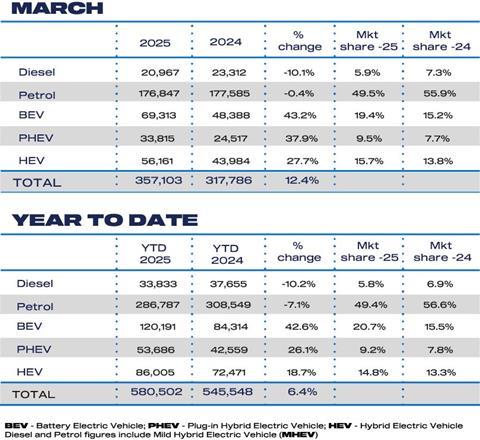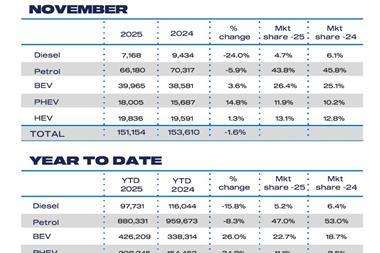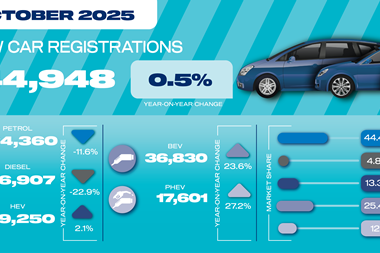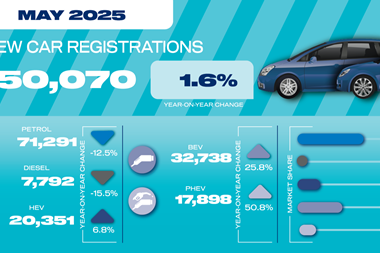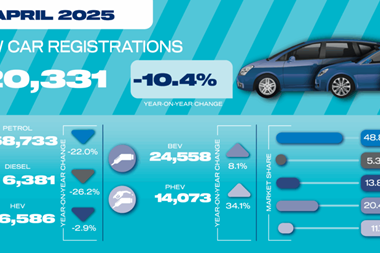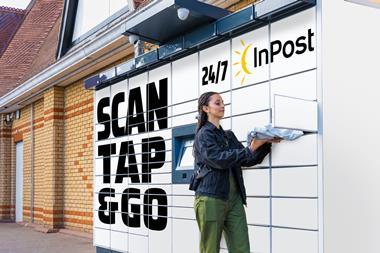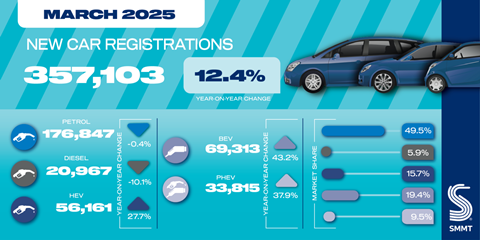
Battery electric car sales were at their highest ever last month at 69,313 units, but the 19.4% market share means registrations are still below the government’s Zero Emission Vehicle Mandate.
According to the Society of Motor Manufacturers and Traders, which released the latest monthly data today, the 43.2% year-on-year growth was boosted by buyers seeking to get ahead of the introduction of the VED Expensive Car Supplement this April, potentially raising ownership costs for most EV drivers by more than £2,000 over the next six years.
All types of electrified cars saw growth in March, with hybrid electric vehicles (HEVs) up 27.7%, and plug-in hybrids (PHEVs) up 37.9%, as manufacturers also incentivised uptake with significant discounting.
A new number plate launched during the month would have also helped boost sales. March usually accounts for around 16% of total car annual registrations. Total new car market registrations rose by 12.4% during the month.
The SMMT is warning that manufacturers face a challenge raising EV uptake from a current year-to-date market share of 20.7% to a mandated 28% share of total car sales for the entire year.
It says that the figures highlight the importance of government incentives and targets for chargepoint rollout to assure consumers and stimulate EV demand.
Manufacturers have been playing their part in developing the market. Last year they spent £4.5 billion incentivising drivers to make the switch, says the SMMT. And it maintains that investment in product development is also bringing ever greater choice to consumers, with more than 130 EV models now available across every size category, and average range now reaching above 290 miles – more than double the average weekly mileage.
It says last week’s Spring Statement was a missed opportunity for the government to intervene with incentives to change consumer behaviour. An SMMT survey in February 2025 found that fewer than one in four new car buyers intend to buy an electric car by 2028, but two in five electric sceptics could be convinced to switch if government incentives were available, as is the case in most other European markets.
Mike Hawes, SMMT chief executive, says that while the March figures for EVs give reason for optimism, he sounds a note of caution. “Manufacturers remain committed to the market decarbonisation the country and the environment demands, but we need sustained growth, not a short-term bubble driven by unsustainable manufacturer discounting and drivers rushing to beat a tax hike,” he says.
“Without substantive government support for consumers, the current regulatory regime is undeliverable. A rapid response to the government consultation is therefore needed - one that adds flexibilities that reflect the natural level of demand and supports the industry to deliver growth in the face of a tough set of global challenges.”
